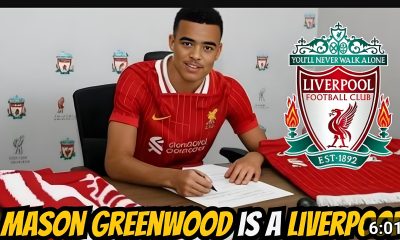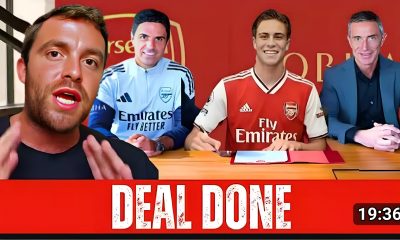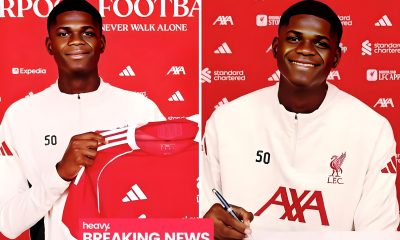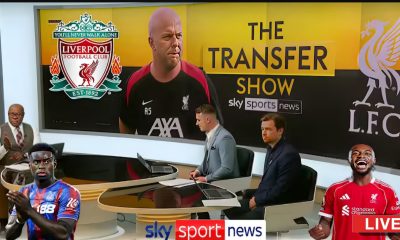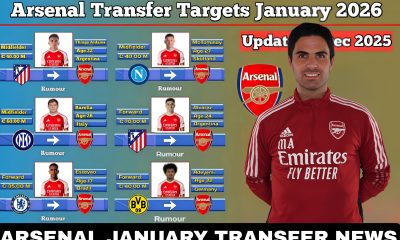Liverpool
REPORTE Liverpool comeback, truth behind Man United offer & more: Jurgen Klopp’s interview in full
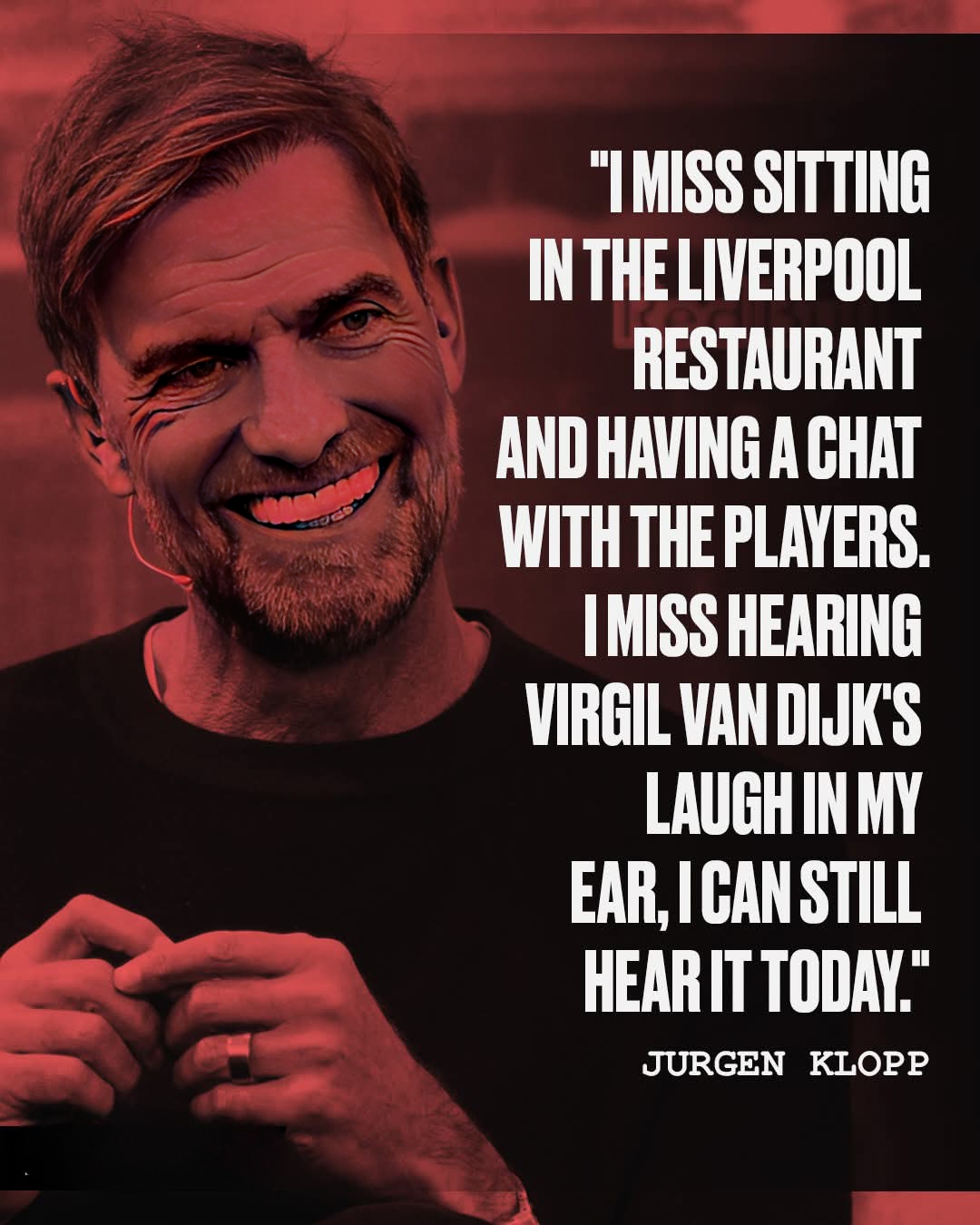
Tribuna/Blogs/Liverpool comeback, truth behind Man United offer & more: Jurgen Klopp’s interview in full
Liverpool comeback, truth behind Man United offer & more: Jurgen Klopp’s interview in full
Read the full verse
Jurgen Klopp / Photo: The Diary Of A CEO
In his most revealing interview since leaving Liverpool, Jurgen Klopp reflects on his remarkable journey — from his early life and tough upbringing under his father, to his playing days, fatherhood, and transition into management.
He opens up about his first approach as a coach, the emotional highs and lows of leading Liverpool, and why he chose the Reds over Manchester United.
Klopp discusses modern football’s pressures — from social media to advertising — and explains the meaning of the Liverpool way.
Honest, emotional, and deeply human, he shares lessons on leadership, loss, faith, and what he still hopes to achieve.
Introduction
Klopp: “It was an intense time. We had to win football games, but all the rest was on my plate as well. I need a break, and you cannot do that in that business. You cannot say, give me a year, see you later.
TDC: “So it begs the question, do you think you could ever go back and manage Liverpool again?”
Klopp: “It’s possible.”
TDC: “So what would it take? You change the club, you change the city. You arrive at a time when clubs were in a period of dysfunction to bring that club back to its glory. And you did that over and over and over again.
TDC: “How?”
Klopp: “To win in a very decisive moment, you have to be the best team. And to be the best team, everybody has to buy into that team and walk through fire together.”
TDC: “How do I get people to walk through fire?”
Klopp: “I better go back to the start. Growing up, my mom was very caring. She loved people. And my dad had expectations. The problem was I was absolutely useless in most of the things, even with football. My teammates were better than me and I thought I only can get on that level if I’m the first until the last minute. I was a warrior on the pitch, but it made me the guy I am today. And so my team plays a little bit more like a heavy metal band because you have 90 minutes and there’s no guarantee to get anything. But the only chance to get something is to give you all. So you want to have the maximum success. Don’t waste time with holding back.”
TDC: “I want to know why Manchester United didn’t purpose you.”
Klopp: “No, they tried. But there are some reasons in that conversation which I didn’t like.”
TDC: “Arne Slot coming in after you and didn’t change much.”
Klopp: “That’s super smart. Not changing much and all of a sudden you win the league by some distance. But this year Liverpool have spent 450 odd million.”
TDC: “You never had a transfer window like that.”
Klopp: “Nobody ever told me that it’s possible that we can spend that.”
TDC: “You seem to always be successful. How does someone succeed you?”
Klopp: “You want to be able to become the best team in England. You need to.”
Early context
The Diary of a CEO (TDC): “I need to understand about your very earliest context, where you came from? And can you point out to me how that very early context created the person you are today and that everybody knows you to be?
Klopp: “I think we all are who we are because of the environment we grew up. My dad was a salesman. And my mom came from a family, and my grandpa had a brewery, and she worked there, blah, blah, blah, and all these kind of things. But her only purpose was her kids. She loved me more than her own life, definitely. And my dad had expectations. He loved me as well, but he had expectations, but my mom didn’t. So my mom was just happy that I was there, and my dad had always something where he was not really happy with. And all the things my dad wanted me to do, I loved doing. So he wanted me to be a sports guy, each sport, tennis, skiing, football. That was his life. So he wanted that his son is good at that, and he loved doing it. If I would have been, I don’t know, sitting at home and drawing or whatever, he would every day take me out and say, go outside and play something. But then, pretty quick, when I became better, it was never good enough. So that was the process. So that’s how I was brought up. That’s him. That’s definitely him. Yeah.
TDC: “Can I keep these pictures?”
Klopp: “Of course you can. That’s good. That’s good. Because I have them, but I’m not sure where. Yeah, exactly. Good looking guy, eh?”
Was your father a tough man?
TDC: “Was he a tough, tough man?”
Klopp: “That’s not long ago. I never got hit by whatever. Never, never, never. It was just he wanted to bring the best out of me. I think that was what he wanted.”
TDC: “Tough in a way, yeah?
Klopp: “How people were brought up in that time, probably. But not tough, endless. That you thought, you don’t want to have to do anything with him. No, no, no. I loved him to bits. And he loved me. He was very proud, but never said it and these kind of things. He was a good guy. A really good guy. With his son, he wanted him to be ambitious and was a bit afraid that I might be not ambitious enough.
TDC: “Competitive man, I hear.”
Klopp: “Yeah, yeah, yeah. Reading about stories of him racing you on ski slopes and sprint races and never letting you win. That’s true.”
ADVERTISEMENT
TDC: “Who knows if it was right?”
Klopp: “Probably it was right. I don’t know. It was not nice. In a way, when you tell the story, it’s like, my God, come on, let the poor boy win or whatever. He had no chance. It’s just you stand on the touchline. And you run to the halfway line. And when you look back over the course of your career, are there moments where you have flashback to lessons that he taught you or principles or values that he taught you that you think, gosh, I got that from my dad? The one skill I realised that my dad had without knowing that time it was a skill, he could speak publicly. You don’t know that you have that, that I have it. Today, I know it. I don’t. if a camera is in my face or whatever, I say what I have to say in that moment without being too worried what might people think about it. If I’m convinced it’s right, then I say it. Talking in public is not a problem, it’s probably from him. My love for people, unintentionally, is from my mom. So this mix of a very confident and a very caring, very confident dad and very caring mom, It’s where I was brought up in the middle of it. And you wanted to be a doctor before then.”
ADVERTISEMENT
TDC: “So you were aiming to be a doctor. That didn’t work out.
Klopp: “Yeah, that’s true.
TDC: “Why a doctor?
Klopp: “No, it was always something I wanted to do. So in all this wonderful upbringing, it was pretty clear that money is an issue. Not in a sense that we didn’t have enough. We always had kind of enough. But I remember discussions, bad discussions about money. arguments if you want, who spent that, who spent that. I was the little one. I just sat around and listened to it. But there was a moment in my life when I realised I have to earn a lot of money and I can sort it all. I wanted to earn money to not having this kind of discussions with my wife or with the kids or whatever. So it grew as a thought.
“When you are a young man and you think, what could you do with life? And for me, it was clear I cannot earn my money with football because In my mind, I wasn’t good enough. And then I got surprised by some people. They thought, oh, there’s something that could be interesting.”
The start of your football career
TDC: “What did they see in you as a football player? What was it that they saw in you as a young man? Because I’ve got these wonderful photos of you as a young player”
Klopp: “Oh, my God. So in my village, I was a best player. in my village. So I scored the goals, I was the fastest, all this kind of physical talent. I was really fast. Later on, when I studied sports science, I could jump far, I could jump high, all these kind of things. So it was a physical talent. The problem was small spaces, technique. That was my problem. So what they saw probably is the attitude. I was a warrior on the pitch. difficult to beat me, stuff like this, to kick me out of the game or get me out of the game. I was really focused. I had a really good attitude for the game. But I didn’t see it. So I was not happy. I was literally surprised by the approach from professional football clubs. I didn’t think, oh, who’s coming? So it was like, the question was, are you number seven from the game before? Yeah? Oh, come on, let’s have a chat.
TDC: “Do you want to come to Frankfurt?
Klopp: “That was the question. It was before that. It was 87.
TDC: “And you were 20 years old at the time when you went to Frankfurt?
Klopp: “Yeah. Well, I mean, a lot happens in your 20th year of life. A lot happens. That was a change. Yeah, I came to Frankfurt. It didn’t take long that I met Mark’s mom.
TDC: “Yeah, your son’s mom, yeah?
Klopp: “Yeah, exactly. And then… She got pregnant and December 1988, I became a father.”
Becoming a father
TDC: “Were you scared? 20 years old, become a father? Massively.
Klopp: “When I heard she’s pregnant, I wanted to run away, go, oh God, it’s not me. So the moment when I got aware of the fact that I will be a dad, I was really scared. The night, 13th December of December 1988, when Mark was born, was amazing. the night when I became an adult and the night who changed my life in the right direction. From that moment on, I was always more an adult than all the other people in my age group. So there were the university, there were parties, I couldn’t go. I went on holiday, I couldn’t. I played football, low wages, third division Germany, had two other jobs, one in the morning, one at night. and playing semi-professional football. That taught me the discipline I didn’t have to learn at home because I had no jobs to do in the house. So I got it a bit later, but it made me the guy I am today.
ADVERTISEMENT
TDC: “Because of that experience, when you became a manager yourself, did that become a bit of a personal reference point to understand the individuals that you were managing? Because if you… were managing a 21-year-old dad versus a 21-year-old that didn’t have kids, did you understand them to be different?
Klopp: “One is, in your own words, one is potentially a man and an adult, and one doesn’t know what that is yet. Yes, of course. I don’t just want to say I like people. I’m super curious. Everybody has a story to tell, so I want to hear it. I think I asked that question in part because I heard stories that Sir Alex Ferguson would prefer players who had a girlfriend Or a wife and kids. And I was wondering if there’s any truth to that, if they have a different stability or. Oh, it’s probably, yeah. A couple of problems. You can, you can have a great partner, married or not, and then everything is fine. It’s the wrong partner. It’s not great. You have no partner, not great for some, and you have too many. It’s not great. So there are so many things in life. So I had to ebb and ebb. I never thought about that. I heard about it.”
ADVERTISEMENT
Players acting differently with partners
“I coached Germany’s very successful manager, Otto Rehhagel. I love him to bits. Fantastic guy. I think he said it once as well, that he wants married players because they go home and stuff like this. That’s one part of the personality, but not… overwhelming or the most decisive or whatever. So it’s like, and you need football is a football game. You need the cheeky ones as well. So you need them the street smart, you need as well. They get out of situations in life and on the pitch, stuff like this. So it’s a mix of everything. That’s what I loved about football teams I treated them, let me say 50% of the time, completely the same. And 50%, what he needs, what he needs, what he needs, but in front of the other teammates. So players came to me, why do you treat me like that? You would never say that to him. No, because he’s from Argentina, grew up without a window, and you are from Munich, and everything was fine. You want me to treat you like him? Really? To bring all these people from different areas in the world together, you cannot expect that they all tick the same way. It’s just not possible. Growing up in Germany is obviously different to growing up in Senegal. It is different. But then we come together in our dressing room and then everybody says, this is the rule for all of you. And yeah, be in time, of course, for easy. But then all the other stuff, come on, calm down. You want a football team full of different skill sets full of different talent, full of different personalities. You want that because that’s what you need. That’s what makes you unpredictable. But then you put just one, I don’t know, helmet over it and say, so that’s for all of you. That’s how we go. There are moments in the game where they have to act like this. In all the other moments, they have to be themselves. So treat them like that.”
ADVERTISEMENT
TDC: “This is one of the most shocking, counterintuitive ideas that I’ve, that I heard from with other managers, specifically because I’ve just interviewed so many of Sir Alex Ferguson’s former players. One of the shocking things they all said was that he treated people differently. And to hear you say the same thing as well, it really is the opposite of what you hear in business. In business, you hear that you have to be a consistent leader, that you have to be consistent, treat people the same. But in the world of football, people like you tell me that’s not true.”
Klopp: “I think in business, in life, it’s the same. So, to lead. That’s number one thing you lead yourself. So that’s the first one. In the morning, you stand up, you have to kick your own butt and say, come on, it’s not the greatest day, but anyhow, we go. And then the people you lead, you need to understand to do it properly. So now, that means you talk to them, you listen to them, you ask them, where are you from? What’s your background? What are we doing here and there? And why did you do that? And stuff like this. So it means it’s already in that conversation, it’s clear he’s different. to the other guy it’s not about the rules, like punctuality, early in, late out. Not about these kind of things.”
ADVERTISEMENT
TDC: “But how can we get the best out of people if you treat them all the same?”
Klopp: “It’s crazy. It’s in business. I don’t think it is like that, but I’ve never I only worked in this football business, or maybe it’s just working here. I cannot see that. For me, it’s super important that you really pick the individual from where it stands, not from where you want it to be. No. Actually, where it actually is.”
Times you treated players differently
TDC: “Can you give me an example that I would know of two people that you treated differently and why you made the decision to treat them differently based on their origin?
Klopp: “So you have a young player as an example. So Trent Alexander-Arnold comes up to the first team. And then James Milner is already, I don’t know, 31 or whatever he was at that time. So James makes clear, first and foremost, that Trent doesn’t go crazy because he sorts all these kinds of things. But there are so many things. just as an example, but James doesn’t have to do this and that because you know he is doing it anyway. So for Trent, you still have to educate the boy. This example, which you probably didn’t think of, but it explains how different they are. They’re different age groups. One is 16 or 17 and the other one is 33. So that shows already that’s not possible. So you are talking about the rules in football. So everybody has to work hard. Everybody has to do it. In my case, everybody has to defend the shit out of the opposition team. So everybody has to buy into that. There’s no, no, no, no. I always said, if you’re not Lionel Messi, you have to defend. You have to defend. So because I never had Lionel Messi, so they all had to defend. For example, everybody has to do that. But then to get there, that they really grow together as a group. In a group, everybody accepts that they are different. Otherwise, we are, I don’t know, an army. And they are different. But it’s not just because we wear the same shirt. We have all our own qualities. So to bring them to life or let them shine, yeah, you have to get treated in the right way. And that’s what I love to figure out. How is that possible? That was the conversations I had, the conversation with players during a season. course there were football talks, but we had already enough meetings. The most important conversations were the private conversations why so when the player is not training well, could be, could, that he just is not ready for training. Had a drink last night, didn’t sleep enough. Or, you ask. So that’s all what you think. He looks like he didn’t sleep enough ask him what’s going on. And he will be surprised most of the time. They either slept enough or didn’t sleep enough for the right reason because something happened and nobody could sleep. They had no drink, but they lost focus right now because massive problems at home. Without asking, we’ll never find out. So here’s one guy with a problem. Here’s another guy. He’s flying. Don’t treat them the same. The one needs more support and the other one you need to bring down a little bit. So all this kind of, that’s how you work with people. In the end, what you want is that the job of a leader is to make the target, the aim, the final destination, whatever, that clear, like the sun, that everybody’s automatically going there and you don’t have to push them every day and say, by the way, there’s the sun, let’s run there, so that they know it. On the way there, you support them in different ways. It’s not so important what I want to say. In a moment of anger or whatever, it happens, emotion, Do that to us, especially around a football game. You shout something. But it’s not so important in a talk conversation with people which depend on you, you are responsible for. It’s not so important what you say. It’s much more important what they need to hear. It’s not them telling them what they want to hear. No, what they need to hear to deal with their situation. So that’s what leadership means, not just telling them, off for whatever, that doesn’t work, that doesn’t work, try to understand why. And that was, I love that part in my job. And I still do that, if you want, right now, not with world-class players all the time, or coaches, point directors, whatever, they’re all young, younger than me at least. And that’s how I understand my role and understood my role.”
ADVERTISEMENT
Players you could be tougher with
TDC: “Was there certain players in your team that you felt you could be tougher with? And others that you felt you could never really be tough with because that would hurt their performance.
Klopp: “I’m reflecting. Of course. You have Sadio Mane and Mo Salah, two top examples. So in the end, there are not a lot of people who saw it coming. We knew they are great. We knew they are massive talents. They have fantastic potential. But they were not who they became later on in that time. It’s not that they came to Liverpool and said, Boss, I just want to tell you, I defend anyway, so we don’t have to talk about that. Just explain to me how we do it. Obviously, to be successful as a football team, you have to organise a football team to get stability. To get stability, you need to find a way to defend properly and together. If you have that, based on that, they can start flying. Then let’s talk about the football part. And now there are obviously no defenders. But we were famous for our pressing and counter-pressing. I talked a lot to them and the way we spoke about it was just 100% clear. You want to win more often than not. You want to have the maximum success. You want to be able to become the best team in England at one point. Yeah? Okay, then do that. Come on. So, agreement. And then from there, we went on. But then with years, and not because they changed or whatever, here a little bit less, there a little bit less. And I have to decide, do I go for them like I would go for a young boy playing in that position? run, fight, jump and take them off in a moment. No, of course not. You don’t do that in that moment. It’s a story in the newspaper. We had this one argument, I think, with Mo at West Ham at the sideline when it didn’t start and I brought him on and he was not happy. The problem, our problems then are always in public. It was not a real big thing, but in the moment we didn’t agree, definitely.
ADVERTISEMENT
“So, how do you deal with that the next day? I think I can say We have a very good relationship today, even though on that day it didn’t look like. And that’s all the things. So you learn, you try to do it the right way. You try to show the players respect. But at one point, it’s never enough. And you have to accept that as well. Because the players, they grow, they get bigger and bigger and bigger. And at one point, you hear years later, he never spoke to me. Whatever, another player from wherever says about a former coach, about me, about Jose Mourinho, he never spoke to me. I don’t know, we spoke a lot. You just can’t remember, and we didn’t speak what you wanted. I didn’t tell you what you wanted to hear, so you can never make it 100% right, but you can only do as good as it’s possible for you, and that’s what I tried all the time, to create a relationship where… Even when we had arguments, we always found a way out as me player. And it never got carried into the team that I lost respect. They lost respect for me because I acted that way. So we always stayed together. We always find a way that they understood, okay, it’s really important that we get through this, that they sorted, the boss sorted with him or the boss sorted with us, that we can go from here again.
ADVERTISEMENT
TDC: “From a very young age, one of the things I found really surprising is in, as I was going through all of these football teams you played in as a young man, it appeared that you were always the captain, repeatedly assigned to be the captain. And I wondered why.
Always being the captain starting out
“What was it that you were doing from a very young age that meant all of your coaches back then asked you to be captain of the team?”
Klopp: “I have no clue. The coach I learned the most of, Wolfgang Frank, when he came back to Mainz, he was at Mainz, very successful spell, left. And then we were in trouble again. He came back. And I was the captain. And we had a very experienced player from a first division team coming to Mainz in the second division. Lars Schmidt was his name. And Wolfgang said, Jurgen, can we talk? Yeah, of course. Jurgen, I want to make Lars the captain. Oh, yeah. Good. So then you are not captain anymore? Yeah, I know. So it was exactly like that. It meant nothing to me. So my role was not, I was a leader in the team. not on purpose. I was on the pitch, an aggressive leader, which I didn’t like. So, heart rate above 140, I lost it very often, in a very, very not good way. So, really aggressive talk, shouting at everybody, and in all that really it was I had to, very often, I had to apologise to my teammates.”
ADVERTISEMENT
TDC: “Where did that come from because you’re I don’t I don’t know there’s a real dichotomy with you, because you’re such a, sweet, kind guy, you have your mother in you in terms of the empathy and the love of people. But then there’s this other explosive part.”
Klopp: “I didn’t like it at all. And I was afraid when I stopped playing that I’d take it over. So I was emotional. I had moments where I lost it with referees and stuff like that. But generally, I’m a very calm person. So people think, because probably I think I’m a motivator or whatever I do, get up in the morning and come in the dressing room and say, come on, boys, today we go again. Not at all. I mean, it happens from time to time, but not that often. No, I have no explanation for it. If I would have had an explanation, it was a little bit. I knew I’m not good enough, actually. My teammates were better than me. And I thought I only can get on that level if I squeeze everything out on it. from an aggressive point of view, stuff like this. So that was a bit my explanation because they are so much better. But if I calm down and want to play cool football, yeah, I’m out.
ADVERTISEMENT
TDC: “You eventually become the manager of Mainz. Yeah. You’re my age when you get that job and the former manager’s been sacked. The club have never gotten to the Bundesliga, the first division in Germany. You don’t have experience managing a club of this size or scale previously. The chairman comes to you, the owner comes to you and says, they want you to do the job.”
Becoming a manager
TDC: “Why did they want you to do the job?
Klopp: “Because I didn’t find anybody else in the short period of time. So we played Sunday and the next game was on Wednesday. The idea was just to do that game. So the whole story is that Eckhard Krautzon, the manager at that time, we lost the game on Sunday and we had a little camp, a crisis camp, let me say, because on Wednesday was another very important game. We had to play, so he took us to a hotel that we stay there, have two good sessions, and then we go for this very, very important and maybe decisive game. And at night we have a meeting with all the players, and he said, gentlemen, I want to ask one question. Do you still trust me? Are you still behind me? I don’t want to answer now. I order beer for all of you. I go out, half an hour, I come back and you tell me. So he goes out. We just bring some beer in, we sit there, look at each other and think, huh? And discuss a little bit. And I was not captain that time. I was not the captain. But then it’s like that, that the decision’s no. What? Yeah, he asked. Why, you asked? Yeah, no. So, and it’s like… Everyone said no. Now we have a discussion, yeah, the majority. Some players didn’t speak, but it was clear. If you ask, the answer’s no. So… It’s like that. I’m not captain. But the captain says, Globo, you tell him. I tell him. Why? Oh, okay. But he comes in. He comes in. And? And I said, actually, no. And he was shocked. He was really shocked. He didn’t expect it. It’s more like a little thing to do. And then we say, yes, we go through that together, something like that. But we said, nope.”
ADVERTISEMENT
TDC: “Why?”
Klopp: “Because he was not the right person.”
TDC: “Why?”
Klopp: “Because we played bad and he was… I love Eckhard Krautzen, but that time for that team, he was just not the right coach. That can happen. It doesn’t say anything about you. But we did wrong training, wrong line-ups, wrong tactics, wrong everything. So that’s how things go bad, in the wrong direction, in that time. And… We didn’t have to make the decision who can take over. We just could say no. He could have said, OK, I will prove you wrong or whatever. But he ran out and said, tomorrow morning, nine o’clock, training. OK. And then he wanted to do a press conference where he wanted to tell the public that he kicks out all the experienced players and starts now the rest of the season and plays only the young kids. So I was one of the old players. I was 33, but I didn’t know that that should happen. So he called the sporting director. We need a press conference, and I want to talk to them and tell them we change everything. And the sporting director says, yeah, we do a press conference, but the subject will be SACU. Okay, so done. And now they didn’t have a coach. And then they called me for that game. “Can you do it? And I said, yeah, I can do it. And I did it, and we won the game. And they didn’t find a manager, so we had Sunday and other games. The first game we won 1-0, the second game we won 3-1. Yeah, from the first seven games we won six and drew one. And we stayed in the league pretty comfortably. Comfortably is incredible. We were a bunch of friends. They were all my friends and I was their boss. They had to tell me that they had changed from now on in the coaches’ dressing room.”
ADVERTISEMENT
TDC: “What are you doing here? Here’s the coaches’ dressing room. That’s your office.
Klopp: “The first night… We had a twin room. Yeah. So, and I got one more game to sleep there with my friend, you and Kamli, there in the same room. And then the next day, they all told me, yeah, you get your own room. Oh, okay. So, but all the rest, we were a real bunch of friends. And they respected me from the first second.”
What was your first approach as manager?
TDC: “What was your approach going into that? You go from being a player to a manager of these boys. “What’s in your mind? Are you thinking, I’m just going to let them do whatever they want to do?
Klopp: “I’m going to, We had Wolfgang Franke, the best manager we all had when we were at Mainz. He was an exception. We, at Mainz, we were a football team who lost all the games when the other team had better players. I think it sounds normal, but you know, in football, it’s a way to win games anyway. We never had that. So then Wolfgang Franke comes in and implements, four in the back, ball-orientated defending, and we did nothing else than that. And we changed overnight. into the one opponent nobody wanted to play against. We were like machines. We were like machines. We are not great football, but we were like machines. There were games our goalkeeper didn’t touch the ball once. We were just defending. It was new at that time, so it was really for all of them. That means we all became believers in that. Then Wolfgang left, and none of the other coaches could do that. None. There was no connection to the coaches after Wolfgang. So I was one of the players. who benefited massively from Wolfgang Frank. And now I arrived and the only thing I did when I, the two sessions I had were both exactly about that 4-4-2 ball-orientated movements. And we go for MSV Duisburg that time. They were third in the table. We go for them like nobody else. But I like these moments. I like to find a reason why it makes sense that why we give our absolute all in a moment like this.
“Why we don’t invest only the the minimum why invest the maximum why we would regret it if we don’t do it? How better life is if we do it? How much more fun it is if we do I love, I love these moments and probably something like that. I told them and from that moment on, nobody wanted to play against us anymore. So like, we were like, wow, animals. It was great. It was a fantastic time. Same team, um, pretty much.”
TDC: “Uh, overnight so you fixed the defensive situation, the formation, and you also told the players in that dressing room a story of why we had to give this, give everything.”
Klopp: “They, they wrote us off, showed outside world, whatever you can do. Most of the time it was real life, but that time, so in my meetings later on, I never prepared in a way that i wrote something down or whatever. Our life was preparation. What happened during the week with us in the world, that was preparation for a meeting. I never thought long about it, just remembered it when I needed it. We spoke, I told the boys. But that time, they needed one person to believe in them. And I did. It was not that I had to convince myself, I have to tell them now. Before that season, I told in an interview, this is the best squad Mainz ever had. It would be really difficult for me to play. Good for us that the team is so good. And then we were in a hopeless situation before I took over. So when I became the manager, I was the one who thought this team is incredible. Nobody knows it yet, but we will make sure in a few weeks they will have a sense at least.”
ADVERTISEMENT
Believing in yourself
TDC: “How important did that prove to be, this idea of making sure that the players you have throughout your career had belief in themselves?”
Klopp: “That’s all. It’s all about that. It’s not football. It’s life. When you started your podcast, people probably told you, well, that might be something for you. But you were not sure. And then with each little thing here and there, oh, how many people listened to your first podcast? Do you remember? No, no, no. I think I read it somewhere. 40?”
TDC: “Something around that.”
Klopp: “It was under 100, yeah. So it’s a start. So it’s a start, and all the rest is if you want history, and that’s always in life like that, that it’s just give it a chance. Of course it makes sense you believe in yourself, but not everybody can do that. But then if you meet somebody who helps you with that, who has a perspective, who can see something in you, then tell them why you should keep it for yourself. Oh my God, I think he’s a talent, she’s a talent, whatever. oh yeah, she’s good at that, he’s good at that. We don’t tell each other, so where’s the problem?”
ADVERTISEMENT
TDC: “Did someone do that for you? Told you that you should believe in yourself. They saw something in you.”
Klopp: “Once I said I never struggled with confidence, but I don’t know why. That’s the truth. But it’s true. I never struggled with confidence. There’s no reason for it. My two best friends in school were genius. And we sat together doing exactly this, reading the same books, invested the same amount of time. They at the best A-levels in school. And I was far off that. So a normal reaction would be, phew, I’m a dump, obviously. But I never thought that. I don’t really know why that happened. So I took it how it was. I thought, oh, respect. You can remember all these things crazy. I can’t.”
TDC: “But you had lots of players that struggled with confidence.”
Klopp: “Yeah, yeah. I tried to create a situation to make sure that the player, if they are not confident yet, they are confident. But, you know, there are moments when they lose it. Confidence is like a little flower and constantly somebody steps on it. It’s like that. Oh, and then it’s growing again. And oh, now we are confident again. Stuff like this. In football, it’s really difficult because it’s like you cannot play without making mistakes. So if a mistake costs you confidence, that’s a real challenge. But I try to. If you would believe as much in yourself as I do, that would be a start.” But as long as you cannot do that, just trust me. So you are good, because I don’t work with other players. I don’t waste time. And it’s true, I don’t. So I really see something, and if I see that I’m patient enough to work on it, much more patient than the public, wants me to be. But of course, the idea is that one day I help you learn flying, but in the end you have to fly yourself, obviously. I cannot do that for you. That’s what it is, football. You have to perform alone. They cannot look at me. What should I do? And that’s my job, is to prepare them as good, to make it, the education, the coaching, as wide as they just pick for me. That’s the idea. But not too much as well. It’s, yeah, it’s obviously was a good time in my life doing all these kinds of things. I worked with some of the best footballers in the world. Really good time.”
ADVERTISEMENT
TDC: “Do you sometimes have to lie in public to protect a player’s confidence? I wonder this because you see managers come out and say, oh, he can’t play because he’s injured or whatever. And they say things, but I wonder sometimes if managers are protecting players’ confidence.”
Klopp: “Yes, we protect players. I’m not sure I ever had to lie, to be 100% honest. I don’t know, but we protect players. Super important. So, for me, super important. He lacks confidence. That’s in football obvious. You see that. You run one-on-one on a goalie and you don’t make it. You can see it. It’s because you don’t have confidence. That’s how it is. There’s a lot of other reasons. It can be wind, weather, ball, opponent. It’s there, but you do it once, you do it twice, three times. Yes, that’s not good for the confidence of nobody. Having that in training, the job is not to talk too much about it, just to give him a chance to get confidence back with the things you do in training, that it doesn’t last forever. The one thing you have to protect players from is the public. Try to, because they are ruthless in moments, they don’t care until something happens or whatever, supporters sometimes. I think we were really lucky with that. We created that bond between the supporters and the team that they were not angry, disappointed, yes, but not angry in a way that I don’t want to see them anymore. So that helped. But of course, we have to protect them sometimes. We have to protect them sometimes from themselves as well. So that’s the job.”
ADVERTISEMENT
Considering players’ social media usage
TDC: “Did you have to involve yourself much with social media usage of your team members? And did you ever consider… someone’s social media usage when you were considering signing them to join the club? Because I think this now as a Manchester United fan, I think when some of our players are posting on social media, little indirect messages and little emojis and commenting things, I just think, oh God, troublemaker.”
Klopp: “We had situations that players texted or posted something at night and deleted it, but I still got aware of it. So not that I read it, but people tell me, oh, last night, there’s an attempt. 3 o’clock. 3 o’clock. Okay. What did he say? Yeah, this and that. Oh. What I do in these situations, even deleted, I go in the dressing room and they’re all there. Last night, this and that happened. Got deleted. I know what’s there, but maybe you want to tell everybody?”
TDC: “You would ask them to say it in front of everybody? Yeah. Not nice, eh?”
ADVERTISEMENT
Klopp: “The thing is, I don’t go for him and tell him, how can you write that or whatever. Somebody told me, so I know it. not important really, but come on, tell the whole team what he wanted to say. And then he started, it’s not great in that situation. I don’t like to bring people in there, but I think that’s a deserved punishment for something like that. But actually the effect is nobody ever did it again because nobody wants to be in that situation in a dressing room, sitting there and be the one who has to explain something he did last night or whatever. I discussed it individual problems, if it was okay, in front of the team, if it was important for the team. Yeah, come on, explain why you did that, why you went out that long, what happened in the last two hours.
TDC: “This photo here is of things going well for you. Yeah. Mines?”
Klopp: “Before I had that, to get here, these are tears. The year and two years before were not for the same reason. So you probably know we didn’t get promoted for a point and a goal. First a goal, first a point, then a goal. And then this happened. That was the first day when it really went well.”
ADVERTISEMENT
TDC: “So this was the day that you got mind promoted for the first time in their history to the Bundesliga.”
Klopp: “Yeah. But before winning that, I learned how to lose. This is very important, I would say.”
Learning how to lose
Klopp: “I think that’s again, to learn even though you want to be as successful as somehow possible. You have to accept that from time to time you lose. And then when you then keep going, you have a good chance if you learn from it. A defeat is a defeat if you don’t learn from it. If you learn from it, it’s a very, very important information. And obviously in football, we have a lot of opportunities to get beat and opportunities to learn from it. But this was the biggest relief in my life, not happiness. That was just pure relief. The pressure was mounting. I was crazy. Not only myself, nobody, not from outside, I don’t know even nobody outside, well thought. But to make it happen that year, that was really special. But it took two years of coming close. Yeah. And dealing with the disappointment. Yeah, true.”
ADVERTISEMENT
TDC: :”When I spoke to Jamie Carragher, I asked Jamie Carragher, actually this morning, I said to him, what was he curious about with you? And this is actually what he said. He said there were so many near misses in your career, whether it was in the Champions League or I remember when you were head-to-head with Man City in that season and you were one point shy of winning the league. And his question was, he’s fascinated with how you were so good at dealing with the disappointment of near misses because sometimes near misses can cripple people. They can turn them into a downward spiral. It can be like the plant that got stood on. It can crush someone’s confidence, but it appears through your career that near misses ended up being positive forces for you.”
Klopp: “It’s not that I knew that always, but we spoke about very early what made me the person I am. These people, of course, mom, dad, my faith as well. And I knew always that I’m not here to get everything. I’m here to give everything. So that doesn’t help in the moment when you fail for a point. But in the general understanding as a person, of course it helps. So I’m not surprised that I fail. I don’t think, I don’t see myself as a constant winner in my mind. I see myself as a constant trier. So I don’t know constant winners, but there might be some out there. But I just can’t imagine a world where it would be like that. All the people running around there, all the happy people, they win all the time. Nobody wins all the time. Nobody does. So it’s all about dealing with the things you want and not get, and then you want it more or not anymore or whatever. So the moments were not great, but I learned it here. Doing it that day changed the destiny of the club of Mainz 05. That’s how it is. My destiny, the players’ destiny changed everything. So we wanted it that hard, but we learned before. We have to try harder. And that’s what I always took. If you don’t get the result you want, try again and try harder.”
TDC: “It was Christian that gave you that job, wasn’t it?”
Klopp: “Yeah. Mr. Heidel. Christian Heidel.”
TDC: “I spoke to Christian Heidel.
Klopp: “His English is very funny, isn’t it?”
TDC: “Yeah. I’m going to translate it for the viewers, but I’m going to actually play what he said to you in German. Oh, of course. So you can hear it.”
Christian Heidel: “Yes, dear global we’ve known each other for exactly 35 years now. First, we were both players. Then you subsequently became my esteemed coach. It all started in Mainz. You changed an entire club. You changed an entire city. Back then, we were promoted to the Bundesliga together, and today Mainz has been in the Bundesliga for over 25 years. Back then, that was actually unimaginable. You go to Dortmund, change your club, change an entire city, and win every title there is to win. You move to Liverpool and the same thing happens for the third time. You change your club, you change your city. I don’t think any coach before you has ever achieved that. And I’m always asked, what makes Jurgen Klopp special? To this day, he has simply remained a genuine person, always authentic, which is incredibly important. Apart from the fact that you are, of course, an outstanding expert. I hope we’ll see each other again soon on our little shared island in Mallorca. And have a great day and lots of fun with your podcast.”
ADVERTISEMENT
TDC: “You changed a club, you changed the city. You did that over and over and over again. You went on and did that again at Dortmund, um, winning a huge range of awards there at a time when they were, weren’t considered to be hopeful. And then you went off to Liverpool and did the same. And as you, I was reading about how, when you traveled to Liverpool, there was 30,000 Liverpool fans watching your plane fly across the channel to Liverpool because they’re all very excited. And you arrived at a time when they were in a period of dysfunction, kind of similar to where Manchester United are now, I guess. And you managed to bring them up from being a team that were dysfunctional, hadn’t won. There was a lot of pessimism around the club. I think as a Man United fan, I was hoping and wondering that if Liverpool would ever come back, I was hoping they would never come back again.”
First impressions upon arriving at Liverpool
TDC: “But you brought them back annoyingly. When you arrived at Liverpool that day, you said in that press conference that you’re the normal one. I remember that. What did you observe when you arrived? What was the culture? What was the feeling? And what was your first thought about what you had to do to bring that club back to its glory?”
ADVERTISEMENT
Klopp: “The feeling I got, I had roughly a week to think about everything from the first call to the signature, I think. Did you have other offers from other clubs? Oh, in that moment, not. But in the summer, I had a lot of offers, like before, when I finished at Dortmund. But in that moment, it was just Liverpool. But it was kind of destiny because I didn’t want to. It was not. We were on a family holiday in Lissabon with the two boys. Ulla and I sitting there. Phone goes. My agent. Why is he calling? Boys look at my face. And I say, Liverpool. And both, yes, the boys. Yeah. And Ulla looks. What? What is it? And she didn’t see my lips when I spoke. What? And realised, oh, my God. We start again. Before she knew, we will go to Liverpool.”
TDC: “Why did your boys react like that?”
Klopp: “Oh, come on. If you’re not a Man United fan, you know what Liverpool means for two people. And they loved it. We fell instantly in love with that club.”
ADVERTISEMENT
TDC: “Did Manchester United have a call?”
Klopp: “Yeah, I spoke to them. So in the year when Sir Alex retired, they spoke to me. Yeah, of course, they were interested. at one point. So at that time, I would have been interested. I was young. I had a sensational team at Dortmund. My God. So somebody probably thought, what is he doing there? Later on, I heard that my players, Hendo, Adam Lallana, James Mellon, that they flew to Real Madrid when we played the semi-final in the Champions League to watch us and wanted to see what is Dortmund doing? My God, what a football that is. I mean, you can’t get bigger compliments. It’s really good.”
TDC: “I want to know why Manchester United didn’t…”
Klopp: “No, no, no. They tried. It was the wrong time, wrong moment. For me, I had a contract at Dortmund. I wouldn’t have left, not really for nobody in that time. They just needed a manager, but the manager they wanted in that case now was one of a few options, I think.”
ADVERTISEMENT
TDC: “So it was you that turned down Manchester United, not Manchester United turning you down?”
Klopp: “Yeah, that way. So I, yeah.”
TDC: “We need someone else on negotiations. We need, yeah.”
Klopp: “No, no, no. He’s not there anymore. The guy who negotiated that. So, um, there are no other people in charge. It’s long ago, long ago.”
Why didn’t you join Manchester United?
TDC: “So why wouldn’t a guy like Manchester United often known as the biggest club in the world? Why wouldn’t you take that job? Why didn’t you take that job? Manchester United, the great Manchester.”
Klopp: “It’s just typical. We are now not private in a private space. So there are some reasons what the people in that conversation told me, which I didn’t like.”
TDC: “Oh, really?”
Klopp: “So United was that big. We get all the players we want. We are like, we can this, we get him, we get him, we get him, we get him. And I was sitting there. So it was not my project. It didn’t feel like my… It was the wrong time, but on top of that, it was not my project. I didn’t want to bring back, I don’t know, Pogba… Paul is a sensational player, my God, but these things don’t work usually. But these kind of things, or Cristiano, my God, we all know that he’s the best player, together with Messi, the best player in the world. But bringing him back never helps. In that time, in 2013, it was obviously not about Cristiano, maybe about Paul, I’m not even sure, we don’t get the numbers together, but it was just the idea is we bring the best players together and then let’s go.”
ADVERTISEMENT
TDC: “It wasn’t about the football?”
Klopp: “No, not at all. And I sat there and it was like… I am not sure. That’s not for me. And then the pure, pure football project comes up with Liverpool. And the sensational talk to Mike Gordon, that’s really important as well. He’s the owner. I know John and Tom, of course, as well, but Mike was responsible for us. After that talk, I wanted to be his friend. He’s such a good guy. So that’s how it started. And in the end, yeah, it was pretty special.”
TDC: “I find this fascinating because as a Manchester United fan, I observed from the moment Sir Alex Ferguson left, we adopted a very different approach and we brought in all these massive name players, Di Maria, Falcao, Ibrahimovic, Pogba, Ronaldo, and we failed. And it taught me something as an entrepreneur about what matters more. And I actually, when I read through your philosophy, it’s quite clear in your philosophy that you prefer attitude and character versus how many Instagram followers you’ve got and what you’ve done in the past.”
Klopp: “Yeah, of course.”
TDC: “And I wanted to get your take on why you think the last, this is very selfish of me, the last sort of 15 years at Manchester United haven’t worked out as an objective observer. I need to know. You cut. You’re a man that was able to take teams and make them successful. And we are currently underdogs in many regards because of the last 15 years.”
Why have Manchester been struggling?
TDC: “What is it that we’ve missed in that time? What have we overlooked in your view? No, you don’t want to hear that. You have a hypothesis, though.”
Klopp: “I didn’t think a second since I joined Liverpool about what Man United did right or wrong. I just did. So it’s like I buy into a situation. So I went to Liverpool and that moment you became our opponent, not my enemy, but a very important opponent. one who is much more fun to beat than maybe, and like Aldous Leaks, with Everton. I know so many Everton fans in Liverpool. We lived there for nine years. So I know so many people, great people. So absolutely. But then you go to the game and think, oh my God, that’s something different. Not I make that up. It’s like that. But I really didn’t think. But always in football it’s like this. And again, like in life, you have a problem and you only try to find a solution for now knowing that You have two days later another problem. You know it, but it’s such for now. Just find a solution for that problem. There’s no mid, no long term. Okay, we have to deal with that for another day or two and then we can sort it. And that means in our sense, we have to deal with that for a year or two and then we can make a big step. In our case, in football case, contracts are running out. Player goes anyway. We can sell him. We can do this. But because you’re in such a rush, all the time, just because you want to or have to win the next game. A little bit it’s like that, being now in a situation, probably United, in the years when they were not happy, they would buy the time from that time. Jose becoming second nobody was really happy there. And you think, oh, remember that in that time second was not good enough. And now you are not even close to that. But that’s not a Man United story for me. It’s just a football story. It’s always like that in the world of football. You win, You’re the greatest. You lose, you know nothing about the game. You draw, you’re boring. So there’s nothing. You’re constant, and it’s only about your own idea what you really want to do and where you want to go. And everything in life is about development. Today, you were not the same 10 years ago. I was not the same 10 years ago. So it means the time between then and now counts. So if it counts, for me, the next 10 years do the same. So it’s important what I do. It’s important what I see in a year, two, three, So I have to plan my own life, mid and long term, as much as I can do that, and especially the destiny and the future of a football club. A player can score a goal, can score five goals, will never solve the problems if you have real problems. And I don’t know the United problems, but Liverpool was the same. It’s not about that. On the day when we lost, sold Phil Coutinho, that was not the day when I thought, Good that we have the money. I lost a player I wanted to work with for the next 10 years, if you want. It was not that I thought, and we can invest it. Yeah, we invested it smartly. That’s true. But it’s not that we found a player for the position and sorted that. We had to sort differently. But we found two really solid, solid and becoming world-class players with Alisson and Van Dijk. That was for the future, to go from there. And now that’s the difference, I think.”
ADVERTISEMENT
How teams without top players still succeed
TDC: “What I love about football is the analogies to the world I’m in, which is the world of business, where you can watch a team like we’re seeing, I think Crystal Palace at the moment, who objectively don’t have maybe the best players in the world. They don’t have the most money.”
Klopp: “Bournemouth as well.”
TDC: “Bournemouth as well, yeah. But they’re doing something which is creating this magic. And it’s this wonderful narrative of you don’t need to have the most talent or resources have the best outcome. So what is that gap between, like, and that’s…”
Klopp: “There must be something. Now, look, it’s a situation, a moment in the situation where Crystal Palace and Bournemouth is massively different to the situation for United. If Bournemouth wins a game 1-0 and doesn’t perform particularly well, you take it and you go on. I’m not sure you would really find an article in the newspaper about it. Just win it and go. But United is United. United, each step is under the focus. And I’m like, what? Oh, he didn’t They won, but he didn’t play great. So they win a game and then somebody doesn’t perform well, so pick him out and go for him full throttle. You think, wow. So the coach has to pick him up again. No, no, no, it’s all right, stuff like this, and the next one, and the next. They’re different, completely different situations. The only problem you have now, in the time you try to sort your problems, all the other clubs improve their situations. So Liverpool has an incredible squad. Yes, are they 100% happy right now with the three defeats? No, probably not. But incredible squad. Arsenal, incredible squad. City, city. I mean, and I want to strike back. There’s already three clubs. Chelsea, in that time when everybody thought, do they have an overview about their transfer market? Do they know who they own and who they loan and stuff like this? Obviously, somehow it pays off. So they have already five clubs. They are above you. Are you happy with it? position six no so and here’s the problem. Should you be happy theoretically with position six maybe this year and build on that so find find a reason. Find a reason to enjoy the situation again. Find a reason to enjoy a 1-0 victory, 2-0 victory at home. Whoever, against whoever. Southampton. Try to enjoy that. Really. Be happy. Go home. And not listening to others who tell you then. That’s what we had years ago when we decided after a draw against West Brom to say thank you to the supporters. We stand in front of the cup and hold each other’s hand and said thank you. And then the press conference, Tony Poole said, what a world we are living in when Liverpool, with the money they spent, celebrate a point against West Brom. Thank you. But it’s your choice how you grow together again. And I think after all the years now without a lot of good football, they need to find a way to grow together again.”
ADVERTISEMENT
TDC: “I fully believe in Ruben Amorim. I think he’s a man that’s focused on culture and I like how honest he is as well. And I think with the team that they have around them, with people like Jason Wilcox and Ineos, who I’ve met, and Colette and all the others that are there, I think we’ve never been in a better place. I personally feel like that because I just think they’re aiming for more long-term things. They’re aiming at more long-term solutions.”
Klopp: “The only problem is you have no clue about football, but besides that…”
TDC: “That’s a small problem. So, yeah, good on you. But I have faith”.
Klopp: “That’s great.”
TDC: “I don’t know if all my friends do, but I certainly do. And the only reason I have faith is because I see the club aiming at more long-term things now and not buying players because they have loads of Instagram followers. When you got that phone call from Liverpool and they asked you to come and join, you said, well, the reason you chose Liverpool is because they felt like a football project versus Manchester United, who seem to be a bit less football-oriented.”
ADVERTISEMENT
Klopp: “But it’s not the same year. Two years before.”
Why Manchester felt like a football project
TDC: “I’m wondering, what is it about their proposal that made you think it was a football project?”
Klopp: “Oh, the situation. I knew the club, I knew the team. So if you look at, on top of that, I didn’t think it that way. But when Alex left, they became champion in his last year, but it was not that the team was one you build a future on. So that’s how it is. When you come in, it’s a bit built to fail, if you want. But I didn’t see it that way. And that time it had other reasons, but if I would have thought longer about it, it would have been probably, yeah, so David… Moise, a fantastic, fantastic manager, what he proves every year, couldn’t do the job. And since then, it’s a bit of a problem. So a new team needs time. He was stitched up. So it needs time. So Liverpool, the team, as I said when I came, nobody likes the team. Not even the team likes the team. I like the team. I like the team. I knew the players. I saw when Bobby Firmino moved there, I said, oh, that’s a smart transfer. I knew Christian Penteke. I loved Origi. I knew John Henderson, I knew Adam Lallana, I know plenty of players, and heard only, ah, kind of good enough. And I thought, oh, well, let’s see. So I like the team. So that’s a football team, proper football, super attitude. I mean, just on day one, I could have played Hendo, Millie, and Adam together in midfield. Maybe I did. I don’t even know my first lineup, but it’s a proper engine room. It’s smart players. It’s people who really want to, want to play. perform, want to work hard and all these kind of things. What do you need for a start? I knew Liverpool was not the same club than they were before. It’s not that I went into the shiny room. I played there a year before with Dortmund in the pre-season and I was massively disappointed about the dressing rooms. I remember you have these pictures in your mind and you think, oh my God, it’s Anfield. And you walk in and make two steps into the dressing room and you run against the wall and you think, Is that all? Where’s the rest? So English dressing rooms are really, really small in the old stadium. Then we think, oh my God, how can you bring it? It was built for 11 players and now we come here with 30. So people in that room, it doesn’t help. So I knew about the history. I knew that nobody’s happy. I knew that I liked the team. That’s a good start.”
ADVERTISEMENT
TDC: “And did they tell you that they were going to develop the ground, the stadium? Did they? make any promises to your assurances?”
Klopp: “No, we didn’t really speak about that in the first conversation. That’s nothing I need to talk about in this kind of conversation. I know the job I had in that moment was just to improve the football team, not the club. That I was involved in all the other stuff happened with time. I realised this is my responsibility now as well. You never know. I don’t plan seven, eight, nine year spells in a club. It just happens. It’s like I don’t think they could sack me, but I know could happen. So I plan from a specific moment on when I sorted the first few things, then I plan mid and long-term or always did knowing it might not be for me. But, um, I wasn’t, I was never worried about that too much.”
Your initial plan at Liverpool
TDC: “What was the first, first couple of things you thought you had to change to get them winning and to get the confidence back and to ultimately bring the city behind you? Was there anything you thought, okay, the first thing I’m gonna have to do is get rid of him, change this.”
ADVERTISEMENT
Klopp: “So a year before, not in that season, but two years before, they nearly became champions. It was a different team. It was a very specific way of football. Offensively, oh my God, they were ridiculously good. Defensively, yeah, lucky, a good goalie there, stuff like this. It was not the same. So we didn’t have the team from that time. We didn’t have Suarez. We didn’t have Sterling. Yeah, we had… Daniel Sturridge, stuff like this. But it was a different team, completely different. I arrived there, I had five strikers. It was Christian Manteca, Danny Ings, Divo Origi, Bobby Firmino, Daniel Sturridge, five strikers. And I want to play one striker system. How do we deal with that? But it was fine. And there was so much quality, it just wasn’t really sorted. So the first thing I had to sort is to organise them. So find a way to make sure that they understand that we have a chance to win the next football game. We have to do a couple of things for that. For Tottenham, three days time to train. Yeah, jump in their face. And let’s see what we get for it. It’s not organised. It’s like we started with an organised chaos. So I gave them a few ideas about where we want to put them under pressure and in that moment, now do it. And afterwards, we talk about how it worked out because there was no time to train. Anyway, we had no time. The week after, we played European League, I think, in the midweek and then we play again and No, it’s like you are in a rush. A coaching career with all the games you have to play, if you really want to, a top team especially, if you really want to develop a style of football, you are set up to fail. Because it’s like you have no time in the pre-season, the players are everywhere, playing big tournaments, and then you come two weeks before the season starts into your camp. let’s go from here. Then you play, top teams play every three days from a specific date on. We obviously, we lost a lot of finals. That means we played a lot of finals. That means we played all the games until the end of the season, which is a lot. So there’s no really time to train and really develop things. So you have to use each little moment to implement a specific idea we all can buy into. And That’s what we did. I loved our first game against Tottenham. Simon Mignolet had to make a few really good saves, but they had to do as well. And that year, Tottenham was really strong. They became second behind Leicester, I think, that was that season. And that’s a start.”
ADVERTISEMENT
Small ideas you implemented early
TDC: “What are those little ideas that you started to implement one by one?”
Klopp: “If you don’t have time to change football, What do you mean? We are all not geniuses. We cannot go there and show them a little bit, pass the ball here, pass the ball there. And if you pass the ball back again, you can shoot and you’re alone in front of the goal. That doesn’t work like that. I’m 100% convinced that you have to make sure that you are stable. If you’re stable, that means that the other team, whatever they try, it’s not easy for them to get through and shoot, just finish. I don’t like that. If you can avoid that, do it. Because we are people, but we now realise a few times it’s not easy. If they have five, six chances after each other, opportunities after each other, then it’s like that you don’t feel great. Nobody plays his best football if each attack of the opponent ends in the arms of your goalie. That just doesn’t work. So how can we do that? And stability is to organise a team that’s number one, two, and three on the to-do list of a successful manager. And that’s what I did. We organised. And then we told them to run their socks off. You have to show the people that you want to change something. You have to show the people that you want to achieve something. I can tell them, but in the end you have to show them. So run. And they went for it. I loved it so much, they loved it so much. It’s easy, they’re all top fit, they want to run. So just show them which direction and it goes. And then we developed, step by step, our own way of football. Brought players in, step by step. But we got stable pretty quickly, not as much as we wanted. I think we became sixth, seventh, eighth. I don’t even know the first season. Two finals, great. Lost both, not great. But then we knew each other and we loved working together with this group. Brought in super players, really super, super players, super characters, super players, and stick together. I mean, what can you do? We lost the European League final in Basel. How it always is, there’s a party after the game. So you cannot organise a party, but you always know if you lose, who wants to go to the party? So I was a new manager. Yes, not that new anymore, seven, eight months in or so. And I realised some players are not there, but it was in a team hotel. So I called them, told them, all here, come on, come downstairs. Oh, boss, really? I tell you what, this was only the start. We only are together since six, seven months. This is not the last final we’re playing. This is the first final we played. Okay, we lost. It’s not important. The first international final we lost. No problem. We go again. And I went to stay on the dance floor. It was a dance floor. And I said, all coming. And they were saying, we are Liverpool. I mean, I had a few parties after the finals we lost. And I always thought, I don’t waste time at all. on not being happy about what we achieved over the whole year, because qualifying for a final is a real achievement. Losing it is not great, but until then everything was fine. And I never accepted that we ignore the rest. So we have a party and then we went on to achieve new things. And we need a bit of time, obviously, but it was okay.”
TDC: “And this goes back to the point earlier about controlling mindset and the psychology after you lose to make sure that you don’t get depressed and…”
Klopp: “If you don’t learn from a defeat, it’s a real defeat. If you learn from it, it’s just, it’s a very, very important information. And that’s how I always understood it. I had enough opportunities to learn, really. How I say it, I lost more Champions League finals than most people play. It’s not a great thing to say. It’s the truth anyway.”
TDC: “You’re known for what they call heavy metal football.”
Known for heavy metal football
TDC: “Do you like that phrase?”
Klopp: “I said a lot of things, but it’s like I said that it was not in my mind that I thought, oh, you want to play heavy metal football? They asked me about Arsene Wenger and the comparison, and they think we are similar in a way. And I thought, what? Arsene and I? No. So come on, don’t be disrespectful to Arsene. I’m a young man from somewhere. But if you want to compare us, then I’m not sure that’s possible because Arsene’s football is rather like an orchestra. And my team plays a little bit more like a heavy metal band. But that was the first day when I thought about my team, I got heavy metal band.
ADVERTISEMENT
TDC: “But it… But it’s true.”
Klopp: “Yes, somehow. It is true.”
TDC: “And I know that more than anyone as a Manchester United fan watching. I’d hate playing your football teams because they ran so much. They were so passionate. They never let up. They could always win in the last minute. And the intensity was, you were just anxious as a football fan watching the games because it was so full on. And it was almost overwhelming emotionally. And I remember through your era, sometimes you’d win games by seven, you’d score seven goals, five goals. Every week when I pull up my phone to check the scores that week, oh, Liverpool have scored five again. Oh, they’ve scored seven again. They’ve scored six again. Sometimes you would concede three, but it was crazy how high intensity the way you played football was.”
Klopp: “Don’t waste time with holding back. I don’t understand it. We have nothing to do with the 90 minutes, 95 minutes, whatever. I don’t. We had to learn. I had to learn to manage games. Inside me until the last day, it was like, come on, come on, try. But then I grew up and I got more mature and stuff like this. It was like, okay, come on, hold the ball, control the ball. All the things at one point you do, you learn. at any time on your journey. And that’s how it is. And I loved the game so much and could play it not that good that I was so happy that I could work with these outstanding players. I couldn’t stop it. I loved it. I enjoyed it so much, seeing them doing what they’re doing. I was number one supporter of my teams wherever I was. I loved what they did. And that’s what I carried through the week. I didn’t tell them. I told them, I want to be your friend, but I cannot be your best friend because I’m the one who tells you off very often. And they’ll tell you, this is not right, this is not right. But the feeling, the general feeling was, I love them. In my mind, my ex-players, I love them all. And some of them don’t love back, let me say like that, probably for some reasons or whatever. But that doesn’t mean anything to me. I love my clubs.”
ADVERTISEMENT
TDC: “Do you think it’s important how you win? Because this heavy metal, high-intensity film was great for the fans. They love watching 3, 4, 5, 6, 7. They love watching that stuff.”
Does it matter how you win?
TDC: “Do you think that matters, or do you think it’s just about getting the three points?”
Klopp: “We didn’t win that often, 5-0 or 7-0.”
TDC: “It felt like it.”
Klopp: “Against United, we did. You can cut it out. No, it’s… Yeah, of course it’s important. So if you have your back packed, going to the stadium as a player, if you have your boots and if you wear a shirt, don’t waste time with anything than giving your all. There’s no guarantee to get anything, but the only chance to get something. So give your all from the first until the last minute. You have to understand this game is only that fun for us because all the people are watching it. That’s why we earn the money. I mean it. I know that’s what people want to hear, but we earn the money because everybody’s interested in it. Everybody. wants to see it, knows about it, reads everything about it, all these kinds of things. And for that, with all the stories around, the only thing we really have to deliver is give your absolute all in a game like that. Whatever, whichever game is there. 5.30, 2.30, 3.30, whenever the game starts, give your absolute all.”
ADVERTISEMENT
TDC: “But why not just 1-0 and defense and boring and pass it around?”
Klopp: “That happens. That happens in games. You realise, okay… We score the goal, but today’s not our day. Come on, let’s get it over the line. That happens, but it cannot be the target or the purpose for the next game again. Let’s do it like that. There are clubs, if the only realistic target is to stay in the league, it’s a wonderful result. But we talk about a club like Liverpool. We are bigger than that. You have to win each football game when you are manager of Liverpool. That’s what people… That’s not that before the season anybody thinks, oh, 38 games, oh, that makes sense. Ooh, more than 100. Nobody had ever. So it’s not like that. But still, each defeat and each draw is like, how could that happen? And that’s why you have to play in a specific way. Not all clubs have the same things to do, but the top clubs, they have to win all the games. And when you have the chance, you win them. Clear. with the proper results, stuff like this. You have to make the people enjoy the football you play. And I love to do that. I loved it, honestly. It’s like the games we played, the results we had were just incredible. It’s just amazing. Not all of them. And I love the 1-0s as much as I do all the others. The Champions League final was the worst final of all the four my teams played. But we won it. Would I take… The other three as well, the performance in the other games was really good, but we lost. It wasn’t fantastic, but we won. All fine. It’s about the result, but if you have a result and another result, it has to lead to really good football at one point. As good as possible for your specific team. You want to stay in the league? Do it with good football. You want to qualify for Europe, do it with good football because we are there for the people. It’s not there that we just go home and the people think, oh, it’s unwatchable.
ADVERTISEMENT
TDC: “I’m not sure I come next week again.”
Klopp: “That’s not fair. Try to play. The game is really a cool game, so let’s make sure that everybody sees it.”
What is the Liverpool way?
TDC: “And what is the Liverpool way? When you come to Liverpool, you are the manager or you are a player, what is the thing that you have to do that’s specific to Liverpool in order to be?”
Klopp: “You have to understand the community. I mean, the community is just a city community and it’s a bigger community around the world. There are so many people. And this club went through a lot, not as the only club in the world, but come on, for that moment, we just think about ourselves, went through a lot. The reaction to these situations was always exceptional, to be 100% honest. And that’s what you have to understand, what you have to learn, that this club means more to the people than just football. So that’s what you have to understand. And that’s why what we do is more important than it maybe is somewhere else. That’s the responsibility we always took and understood 100%. Our players understood. To play for Liverpool is not just a club where you play during your career. It’s the club and it’s something you will definitely remember for life. So we tried to make sure that the boys understood If we give our absolute everything now, we meet in 10, 15 years, look back, and we think it was the best we could have done. The absolute best we could have done. And I think that’s how my view on life is as well. All the other stuff is just sorting the problem in front of you. There’s something we have to sort. But when you sort, you think about what’s the effect for the rest. And that’s what some people, some clubs maybe don’t want to see because they’re Pressure is too big just to make sure, okay, tomorrow at least they will not write, we have no clue. Tomorrow at least they will say they found a solution. And then we can think about the next day or whatever.
TDC: “How does someone, I don’t know how someone succeeds you because you have such a big aura.”
Succeeding you: Arne Slot’s challenge
TDC: “Are you aware that you have a big aura?”
Klopp: “Don’t know if anybody has the awareness of that. I heard about it, but they don’t know what it means. 100%, to be honest. But I see it with other people.”
TDC: “And energy, when you arrive, it’s the passion, it’s the ability to talk, it’s the ability to inspire people. It is, you know, it has an impact on the rival team you’re playing because they go, oh, Klopp’s here, and big personality, big charisma. So Arne Slot coming in after you, he doesn’t appear to be as, have the same size of an aura. And I don’t know, I just think, big shoes to fill in terms of your aura.”
Klopp: “I have to go to the toilet.”
TDC: “I bet you do.”
Klopp: “Oh, really? Okay.” Big shoes.”
TDC: “Big shoes. I would not want to fill such shoes.”
Klopp: “A couple of things. First and foremost, I thought I have to say what I had to say when I announced my exit, if you want, my retirement, whatever you want to call it, at the time. And people judge that, wrong moment, blah, blah, blah, whatever. I cannot change that. The feeling was I have to say that. Then you have to finish the season as good as somehow possible. In either world, you win something. We couldn’t do that for whatever reason. And then you have to make sure, because that’s still something you have to do. You have to try to make it as easy as somehow possible for the guy who’s coming after you. That’s what I tried as well. Because I wanted them all to do incredibly well. And I always thought if somebody… He’s not doing it that way. It’s the first hint you can get that maybe he wants the next guy not to do it well. Everybody’s shouting, oh my God, he did that, he did that, he did that. And I don’t need that. I want Liverpool to do well. I want Liverpool to win. But they did. So what I liked a lot about Arne, and Arne didn’t hesitate, but you said, no, I don’t want to go in these shoes. Arne didn’t have that problem. He thought, okay, that’s a great club. That’s a great team. And he’s right. It was a fantastic, it’s a fantastic club and it’s a fantastic team. And he stepped into that. We had a lot of contact after that. He was super, just super, super good guy. And I was like, my God, what a team. Wow. Thanks a lot. All these kinds of things. Yeah. And he, made the best, he got the best out of this team and they became champion in an incredible manner, to be honest. So, and I’m really, really happy about that. So that’s all, that’s all. Is it all about, it shows again, it’s all about how you see it. You can see you step into my footsteps, how you called it, or you take over a fantastic football team.”
ADVERTISEMENT
TDC: “It was a brilliant, I mean, my best friend’s a Liverpool fan and he said, before you left actually, he said, this is the best squad Liverpool have ever had. Arne has inherited that squad, which is considered to be the best squad by many people that Liverpool have ever had. And in that first year, it didn’t really change much. There wasn’t any big signings coming. I actually heard from one of the players in Liverpool that, them say, to a really good friend of mine, that the best thing Arne had done was actually in that first year, don’t change much. Don’t come in and try and radically change things.”
Klopp: “But that’s what Arne Slot would say himself. Probably, I think he said it. That’s super smart. So it’s not about what Arne wants to show the world what he can do. It’s about how to get the best out of this team. And that’s exactly what he did. Not changing much means he changed a little bit. We became third the year before. So there’s not a lot you have to change, but a few decisive things you have to change. And all of a sudden you win the league by some distance. So that’s what it is. Not that he has to put his new own stamp. This team was good in a lot of ways, but we didn’t win. the year before. So, and that’s what he, what his, what his job was. And he did that in an incredible, impressive manner. So, and that’s all you want. And you need people who have the confidence to do these kind of things because it doesn’t make sense if you have a manager who is not 100% sure about the things he wants to do and, I want us to play like this, or if that’s not possible, I want to play like this, or I want to, maybe completely different. That doesn’t work. Being a football manager is already a challenge with all the different things you have to do. Being a football manager in such a competitive league like the Premier League is a real challenge. Being a football manager in the world we are living in with media, social media, and all these kind of things, it’s an incredible challenge. Believe me. you have no clue what’s coming up the next day. You think, oh my God, where’s that coming from? Who was that? Oh, my player. You read the story, whatever, and all of a sudden you think, oh, from a problem, it turns into your problem in a wink. So sort that and all the rest as well. So you need this kind of, I love that about Arne, that he came in and took over. And he knew he got a good team. Yes, it was. And he did a perfect job.”
Liverpool
Home Europe Dutch pundit reveals Liverpool manager Arne Slot is a big fan of…
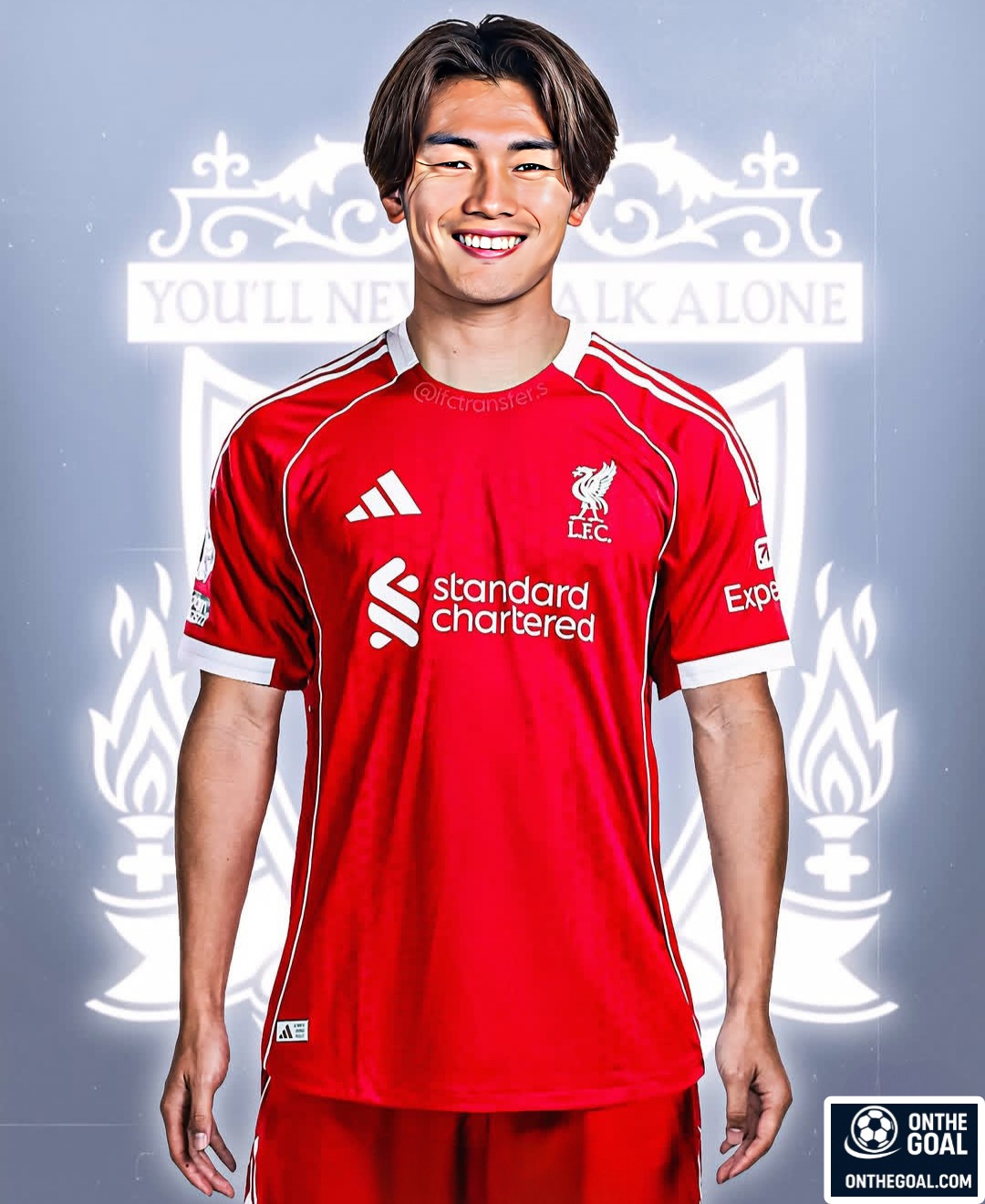
Dutch pundit reveals Liverpool manager Arne Slot is a big fan of Japan international
Liverpool manager Arne Slot is a big fan of his former player, Feyenoord striker Ayase Ueda, and backed him when others doubted. That’s according to Dutch pundit Hans Kraay Junior.
He’s been speaking to Voetbal International, relayed by Voetbal Primeur. During that conversation he revealed the Liverpool manager remains a firm fan of his former striker.
Ueda has been in fine form this season, with 19 goals in 21 games in all competitions for Feyenoord to date. He has 18 in 15 in the Eredivisie alone.
He’s already doubled the nine goals in 31 he managed last season, firmly establishing himself as a key man in this Feyenoord side.
It’s been a steady rise for the 27-year-old, who initially played a back up role behind Santiago Gimenez after arriving in an €8m deal in 2023. His first season saw him score just five goals in 37 games as a result, with his second seeing him improve on that, albeit just by four with nine in total in 31.
Arne Slot faith vindicated
GRONINGEN, NETHERLANDS – SEPTEMBER 28 2025: Ayase Ueda of Feyenoord celebrates after scoring his sides first goal with Jordan Bos of Feyenoord during a Dutch Eredivise at Euroborg
Five of his goals came in 36 appearances under Arne Slot, before his eventual move to Liverpool in the summer of 2024. But, according to Kraay Junior, the Reds boss had no doubts the striker would come good.
“Misjudged, misjudged; of course, he was behind Santiago Gimenez, who was often in top form and therefore also found the net quite often,” he said.
“So, whether we were wrong isn’t important, but Arne Slot—credit where credit is due—has told us and me several times when we asked about Ueda’s potential.
Liverpool
Ekitike: “If Salah Passes Me the Ball, I’ll Score a Hat-Trick Against Brighton”
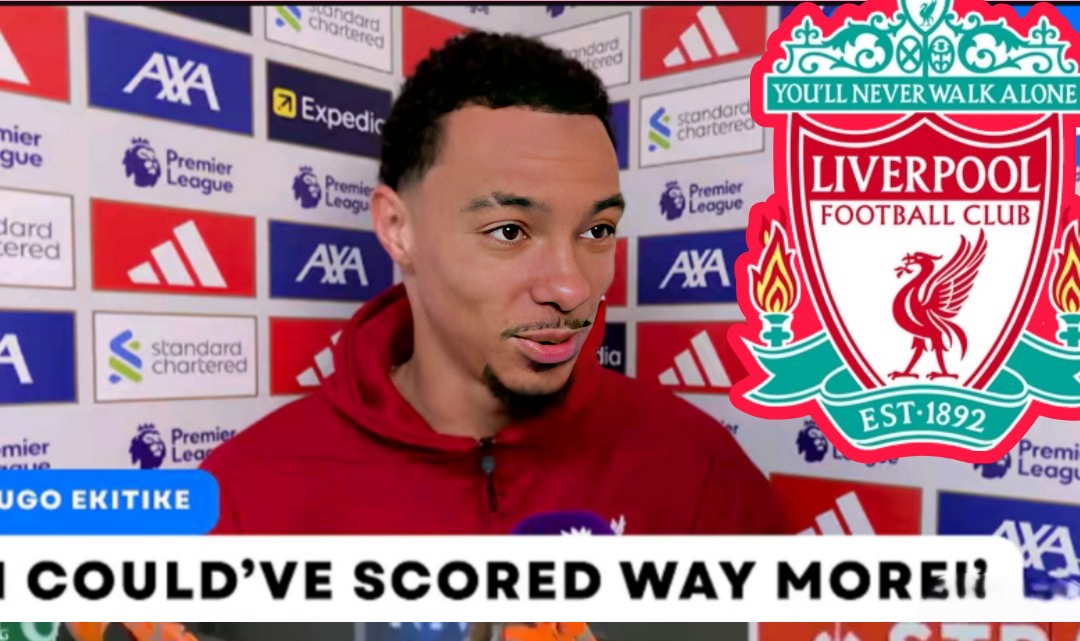
Hugo Ekitike has sent a clear and confident message ahead of Liverpool’s clash with Brighton and Hove Albion, boldly claiming that he would score a hat-trick if Mohamed Salah supplies him with the chances.
Speaking ahead of the highly anticipated Premier League encounter, the forward expressed his belief in both his own finishing ability and Salah’s creativity. According to Ekitike, playing alongside a world-class creator like the Egyptian winger could be the key to unlocking Brighton’s defense.
> “With a player like Salah, you only need the right movement,” Ekitike reportedly said. “If he passes the ball to me in the right moments, I am confident I can score three goals against Brighton.”
The statement has quickly grabbed attention among Liverpool fans, especially as Salah continues to be the Reds’ main attacking outlet. The Egyptian has been in fine form this season, consistently creating chances and leading the line with experience and quality. Ekitike believes that a partnership between them could be devastating.
Brighton, known for their structured build-up play and high defensive line, could be vulnerable to quick transitions and sharp runs in behind—an area where Ekitike feels he can thrive. His pace, movement, and confidence in front of goal make him a potential threat if given the service.
While some may view Ekitike’s comments as ambitious, others see it as the mindset of a striker hungry to make a statement on the big stage. Liverpool supporters will be eager to see whether this confidence translates into goals on matchday.
All eyes will now be on Salah’s right foot—and whether Ekitike gets the chances he believes will lead to a memorable hat-trick against Brighton and Hove Albion.
Liverpool
Liverpool made concrete offer to sign right-back ‘revelation’ last summer and could try again in 2026
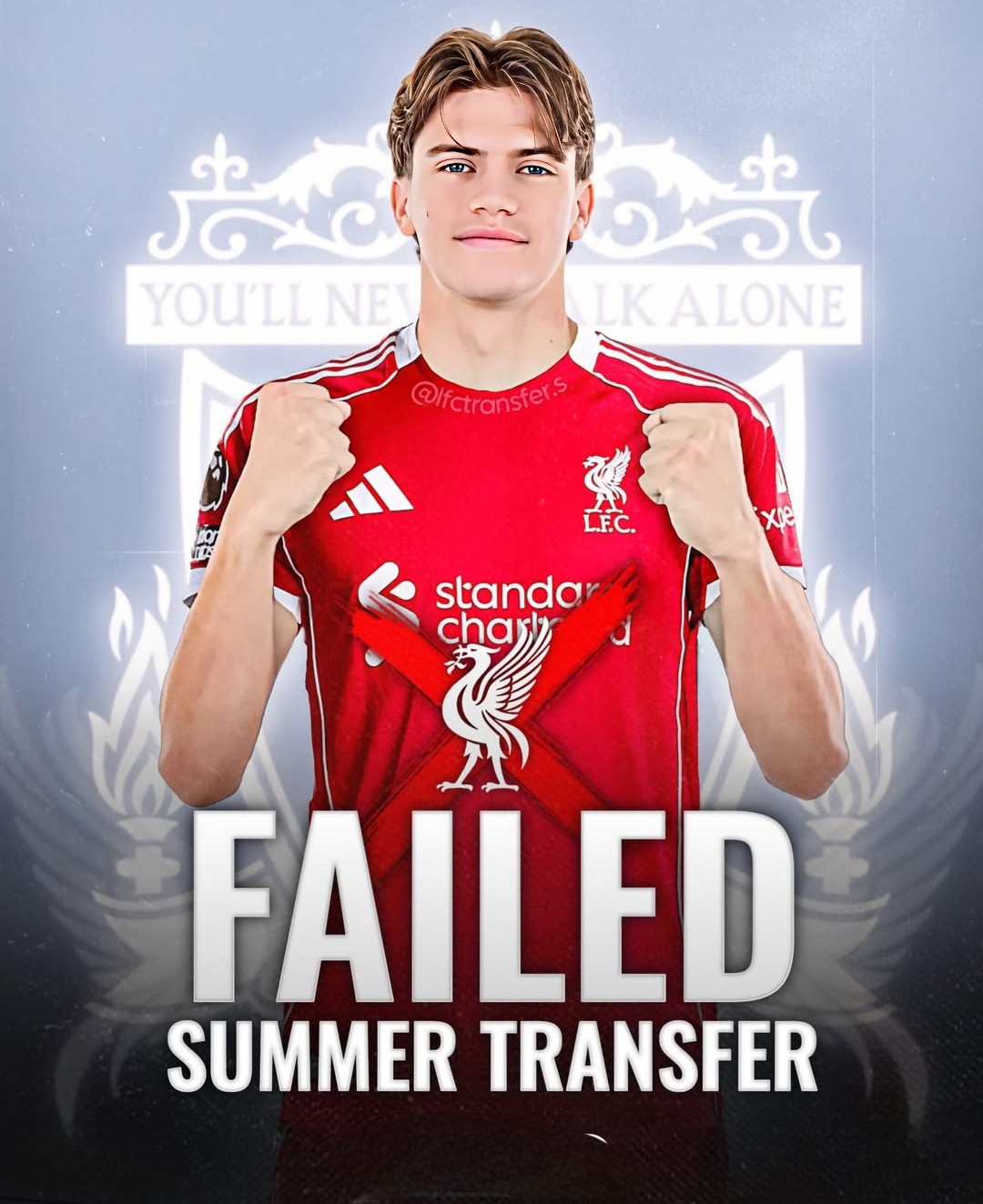
Liverpool have so far failed to fully nail down a new starting right-back following Trent Alexander-Arnold’s summer exit.
The Real Madrid star was a shoo-in across almost a decade with the Reds and has proven difficult to replace for Arne Slot.
Liverpool signed Jeremie Frimpong as a nominal successor to Alexander-Arnold, but the Dutchman has run into a series of injury problems during his first months at the club.
Liverpool ready to try again for Marco Palestra
Given how little has been seen of Frimpong since his arrival, it is slightly difficult to judge exactly whether Liverpool need to sign another new right-back.
However, the feeling is that Liverpool could have probably done with looking at a more orthodox player for the position last summer.
As per Italian outlet Calciomercato, Liverpool did actually attempt to do this in making an offer for Atalanta’s Marco Palestra.
They claim the Reds made a £17.5m bid to sign Palestra before the season started. Keen to send the 20-year-old out on-loan instead, Atalanta rejected the offer.
The attempt to buy Palestra – who ultimately joined Cagliari on a temporary basis – was said to have been part of a wider initiative from Liverpool to scout promising young Italian players, one which led to the signing of Giovanni Leoni.
Despite being knocked back, the Reds are reportedly still interested in Palestra, but have now been joined by ‘almost all of Europe’s top clubs’ as the youngster impresses with Cagliari.
-
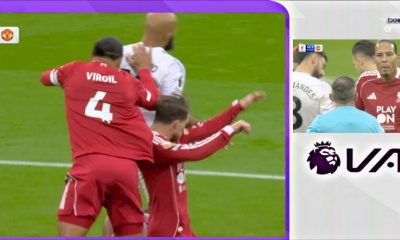
 Featured3 months ago
Featured3 months agoVAR AND REFEREE ERROR Why Manchester United goal stood despite head injury to Liverpool star Alexis Mac Allister
-
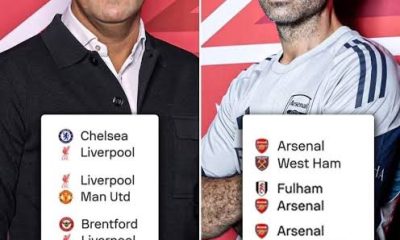
 ARSENAL'3 months ago
ARSENAL'3 months agoArsenal’s next five fixtures compared to Liverpool and Man City after Crystal Palace win
-
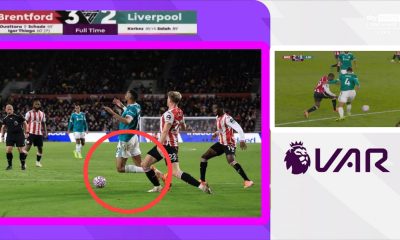
 Liverpool3 months ago
Liverpool3 months agoPremier League explains two controversial Liverpool penalty decisions as referee replaced
-
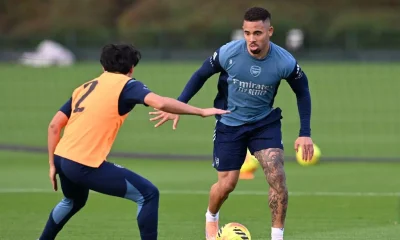
 ARSENAL INJURY UPDATE2 months ago
ARSENAL INJURY UPDATE2 months agoGabriel Jesus training footage sends clear message to Mikel Arteta ahead of Tottenham clash
-
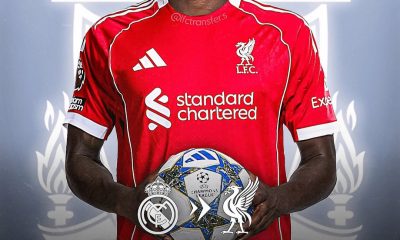
 Featured2 months ago
Featured2 months agocentre-backs available THIS SUMMER for Liverpool FC
-
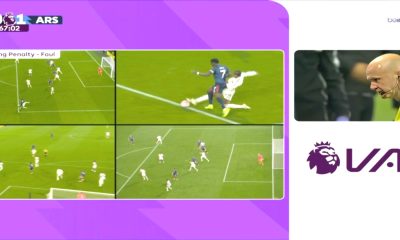
 Arsenal predicted XI3 months ago
Arsenal predicted XI3 months agoFulham 0-1 Arsenal 69: NO PENALTY! Finally the decision is made. Anthony Taylor steps away from the screen and announces that Kevin played the ball. It seemed pretty clear but it took an age to get there.
-
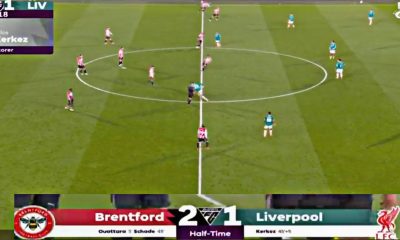
 Liverpool3 months ago
Liverpool3 months agoGOAL! Brentford 2-1 Liverpool | Kerkez ’45+5
-
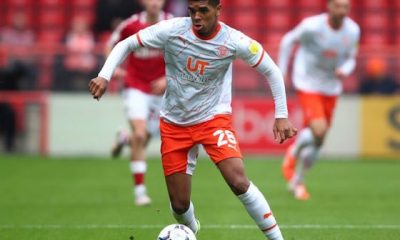
 Arsenal predicted XI3 months ago
Arsenal predicted XI3 months agoFormer Arsenal star training with first-team ahead of Atletico Madrid



